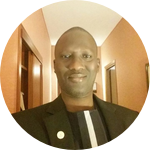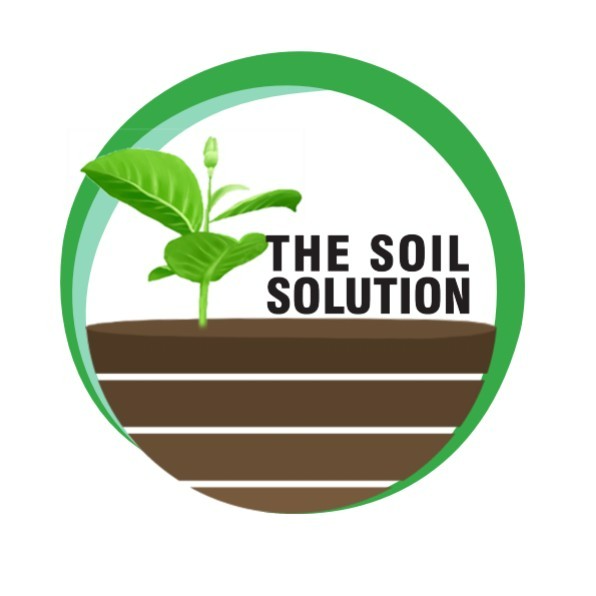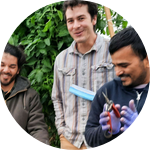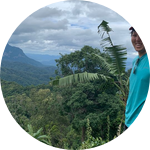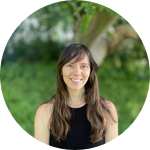About This Project
This project aims to democratize access to soil analysis by developing a machine-learning model to predict soil pH from photos, accessible to anyone with a smartphone. To conduct the study soil samples and images will be collected. Lab analysis data will then be used to train a machine-learning model. This will enable easy, quick, and inexpensive soil data collection, empowering anyone with a smartphone to study soil pH; especially valuable in regions lacking laboratory facilities.
Ask the Scientists
Join The DiscussionWhat is the context of this research?
This project emerges from the need for accessible and affordable soil analysis, crucial for effective validation and research on soil conservation practices. Traditional soil testing methods are often costly and require laboratory access, a barrier for many resource-limited settings, such as in West Africa-the location for this proposed project. By leveraging the ubiquity of smartphones and the power of machine learning (ML), this initiative aims to enable anyone with a smartphone to conduct soil pH studies. Studies have shown that with context-specific models, ML can reliably make accurate pH predictions. A model has yet to be investigated for development and application in West African soils.
What is the significance of this project?
Approximately 2.5 billion hectares of arable land (40–50% of the world's potentially arable land) are degraded (low soil pH and low organic matter) and much of this land is in regions that don't have access to soil testing facilities. At the same time, some local practices and amendments can be used to remediate these issues. By having a cost-effective, simple way of analyzing soil, farmers/land managers can design and conduct their own studies to improve these soil parameters. This approach not only democratizes scientific tools but also fosters a deeper understanding of soil health, crucial for sustainable agriculture and environmental stewardship. It represents a step forward in frugal science, promoting innovation and problem-solving in diverse contexts.
What are the goals of the project?
The fundamental goal of this project is to develop a reliable ML model that can accurately predict soil pH from smartphone images in West African Soils. This ML model will function as the foundation for a soil pH analysis app that can be used by anyone with a smartphone. Across the 2024 season, we plan to follow protocols developed by Gorthi et al., and Barman, - collect ~2000 soil samples for image data and pH data; for image data- dry samples, take pictures with the 3 most common smartphone cameras- and pH data - collect through verified handheld sensor analysis. Using image and lab data, train ML model with novel Tree-based Pipeline Optimization tool (TPOT), to create ANN regression to predict pH.
Budget
The context for this technology is a region with low access to soil testing facilties - The Gambia, West Africa. Soil testing is not a common practice, so our partner organization will conduct soil testing and soil image capturing to train the ML model. Additionally, analysis of pH requires distilled water. Most of the funds are going towards data collection, and the remaining funds are for machine learning programming, creating, and verifying a model, which also requires AWS. For cameras, we will purchase 3 smartphones with different cameras to collect 3 different photos for each data point, cameras will range between iPhone, Samsung and Huawei, the most common brands in West Africa.
We already have soil pH sensors to use, but have added a benchtop EC/pH sensor to add EC (electrical conductivity ie. salinity) measurements this will allow to add an extra parameter and attempt a ML model for EC. As far as we're aware, no EC model has been attempted with phone images and ML.
Endorsed by
 Project Timeline
Project Timeline
The project will initiate with pre-rainy season soil collection across The Gambia's 5 regions, in collaboration with local farmers. Collection will continue through the rainy season to get a strong diversity of samples- this will likely face potential roadblocks with transportation delays. Finally, the model will be trained and refined using collected data. Depending on the data variability and model accuracy, after Jan. more soil data can be collected to improve the model.
Apr 02, 2024
Project Launched
May 15, 2024
begin establishing sites for soil photos and pH collection
Nov 13, 2024
finish collection of soil photos and pH
Dec 02, 2024
classify data throughout data collection process and finish classification
Dec 10, 2024
begin training Machine Learning model
Meet the Team
Affiliates
Andy Blunk
M.S. Plant Science and International Development, Penn State University
I am an advocate of decentralizing applied agricultural research methods through inexpensive handheld devices, simple data collection tools and farmer education, to improve opportunities for agriculture communities to lead and respond with solutions to the ever-changing agricultural challenges.
My research focus has been on plant nutrition and soil health monitoring methods.
Young Hoon
B.S. McGill University, Computer Science
Hi, I’m Hoonie Kwon! I’m currently working as a Software/Machine Learning Engineer in the financial sector. I have a broad interest in machine learning which started during my time doing applied ML research in an immunology lab while I was at McGill. My interest in agriculture started during my first job where I helped conduct research for the Department of Agriculture at Penn State and continued as I spent some time WWOOFing in Europe.
Erin Treanore
M.Sc., Ph.D., Entomology, Penn State University
I am an entomologist by training, having over ten years of experience conducting research in diverse agroecosystems, laboratory settings, and across insect taxa. I'm passionate about translating research into practice and designing sustainable agroecosystems.
My contributions to this immediate project will be supporting project administration, timeline and deadline management, and logistics, all of which I have extensive experience carrying out in my previous research. Moving forward, we seek to understand how our intended soil amendments may influence the aboveground insect community, e.g., beneficial insects and pests, and I will provide guidance on this focus area.
Additional Information
It's important to note- this technology has the potential for development in soil context. However, for this project we will focus on regions that have the least access to current testing capabilities as we see them as having the most immediate benefit from these technologies. In the long term, we hope to develop similar models that will be effective across soil types and regions.
Based on this rationale, we are focusing on the Sahel region of the Saharan Desert in West Africa. This region is currently undergoing extreme desertification. Soil organic matter and soil pH are key soil health parameters, that, when controlled, can reduce desertification. Empowering local scientisits, and youth, with the tools to run their own studies and experiments on this vital context, is of immediate importance.
Here are some of the research papers that are informing this project:
Soil organic matter prediction using smartphone-captured digital images: Use of reflectance image and image perturbation - ScienceDirect
Predicting soil organic matter from cellular phone images under varying soil moisture - ScienceDirect
Predicting soil texture from smartphone-captured digital images and an application - ScienceDirect
(PDF) Prediction of Soil pH using Smartphone based Digital Image Processing and Prediction Algorithm (researchgate.net)
Project Backers
- 5Backers
- 100%Funded
- $10,260Total Donations
- $2,052.00Average Donation
